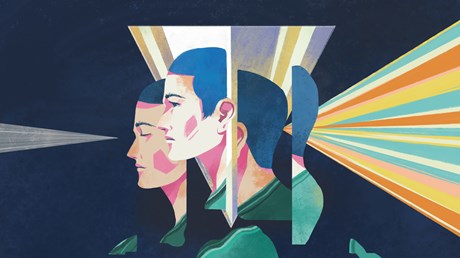In a candid account of living on the spectrum, a Taylor University professor invites us to see his “deficiencies” as gifts.

Words are powerful, and often in subtle ways. Labels, for example, help us to distinguish things, and an important part of science consists of coming up with labels for newly discovered features of reality. But labeling gets complicated in the area of human sciences, especially when we’re dealing with different types of people.
I’ll never forget the advice I received from one of the professors in my doctoral psychology program: We never refer to people with schizophrenia as “schizophrenics,” he said, because it dehumanizes them by seeming to reduce them to their disorder. This resonated with my Christian belief that people with schizophrenia are made in God’s image.
If anything, labels are even more powerful in today’s world. For many, they serve as identity markers in an increasingly fluid political and cultural landscape. Poet and Taylor University English professor Daniel Bowman Jr. illustrates this dynamic in On the Spectrum: Autism, Faith, and the Gifts of Neurodiversity. The book, a fascinating and moving “memoir in essays” written by an unusually reflective and transparent evangelical, aims to reframe our thinking on autism by suggesting new labels to describe it.
Bowman defies certain stereotypes that many people associate with autism, which makes the book unusually compelling, even if it might make him a somewhat controversial spokesperson for the autistic community. Nevertheless, it is precisely his remarkable degree of self-awareness that enables him to give some stunning descriptions of what it’s like to be autistic.
Bowman shares honestly about social anxiety, “executive dysregulation,” a tendency to push others away, periodic meltdowns, and significant ...
from Christianity Today Magazine
via


.gif)

.gif)
.gif)
